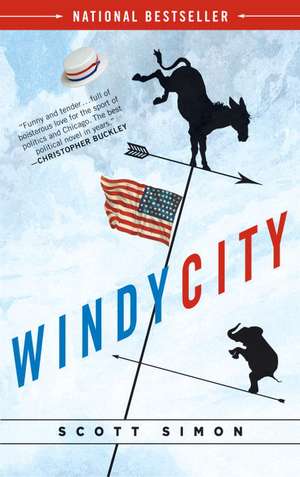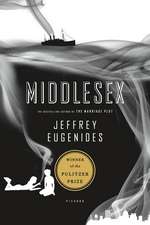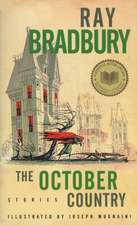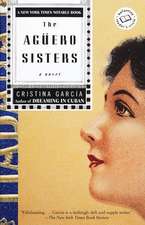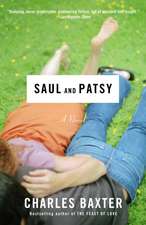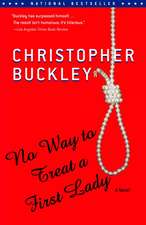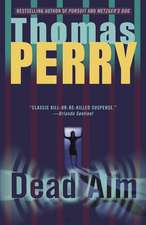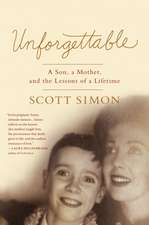Windy City: A Novel of Politics
Autor Scott Simonen Limba Engleză Paperback – 31 mar 2009
The mayor of Chicago is found in his office late at night, murdered, facedown in a pizza. As police race to find the killer, the interim mayor, Sundaran “Sunny” Roopini, tries to juggle his responsibilities as a recently widowed father of two teenage daughters while herding his forty-nine fellow city aldermen toward choosing a new mayor. Over the course of four days, this raft of colorful characters–heroes, rascals, and pinky-ringed pols of all creeds, colors, and proclivities–will clash, as Sunny, a flawed but decent man, tries to hold together his family and his city.
Preț: 135.25 lei
Nou
Puncte Express: 203
Preț estimativ în valută:
25.88€ • 27.09$ • 21.54£
25.88€ • 27.09$ • 21.54£
Carte tipărită la comandă
Livrare economică 31 martie-14 aprilie
Preluare comenzi: 021 569.72.76
Specificații
ISBN-13: 9780812976694
ISBN-10: 081297669X
Pagini: 419
Dimensiuni: 133 x 203 x 24 mm
Greutate: 0.3 kg
Editura: Random House Trade
ISBN-10: 081297669X
Pagini: 419
Dimensiuni: 133 x 203 x 24 mm
Greutate: 0.3 kg
Editura: Random House Trade
Notă biografică
Scott Simon is the host of NPR’s Weekend Edition with Scott Simon. He has reported stories from all fifty states and every continent, and has won every major award in broadcasting. He is the author of the memoir Home and Away, Jackie Robinson and the Integration of Baseball, and the novels Windy City and Pretty Birds. He lives with his wife, Caroline, and their daughters, Elise and Lina.
Extras
Chapter 38
Matt Martinez had not changed from the blue leather service jacket he had worn to preside at the booking of Clifford Meadows in a holding cell on south State Street twelve hours earlier. The creak of his jacket’s blue sleeves in the cold had irritated him for at least the last four hours. The chief felt gray, as if his skin had grown a top layer of scales. Sunny surrendered his own chair, and the police chief sat down heavily.
“God’s Good Earth Warriors,” he began. “They are—I don’t know. Activists. Concerned citizens. Militants. Terrorists. Shits. Shits,” he finally pronounced.
“They say they wanted to dramatize the dangers of unknown substances creeping into food supplies. So they slipped a toxic substance into the mayor’s food supply. The mayor? He was just unlucky enough to be a target of opportunity. If Meadows had met a monk with the Dalai Lama, or Oprah’s hairstylist, there might have been a different victim. Claudia McCarthy stopped in for coffee every morning when she got off the Brown Line. Men notice her, right? Meadows worked behind the counter, and he noticed her. Noticed that she used soymilk. Found out—maybe he overheard—that she worked for the mayor. His mind began to work. I mean, if you’re going to penetrate the mayor’s inner circle, what better way than Claudia?”
Matt Martinez finally took off his checker-brimmed hat and laid it in his lap. He quickly ran his fingers through his hair to lift it from his scalp.
“Between all the frothing and sprinkling, Claudia told Meadows about the mayor’s routines. His habits. His appetites. She didn’t realize it, of course. She was just making conversation. Maybe trying to impress Meadows a little with her job. Meadows probably didn’t have to ask very much. After a while, Claudia realized that they never went to his place. He said it was being renovated. He said he had roommates. He said he had dirty dishes. He never answered his phone. He said it was his brother, and they didn’t get along. Which seems to be true, by the way. After a while, Claudia figured out that she was being used. She just thought it was in the traditional manner. Six weeks ago, she stopped seeing him. By then, Meadows had gotten all he wanted. All the information that was necessary to plant the poison and kill the mayor to make . . .” Chief Martinez fairly spat the last words, “their point.”
Arty Agras was the first alderman to speak. His words were slow, and tinged with incomprehension, as if he were trying to read words in a book in a dream.
“So, Matt. The people who killed the mayor. They—they’re—orgasmic food nuts?”
Linas Slavinskas caught Sunny’s eye. They both fought down grins. Chief Martinez ignored, or didn’t catch, Arty’s phrasing.
“What did you expect, alderman? Mafiosi? Hit teams from the KGB? Nuts do the job just fine.”
Vera Barrow had reached over to see some of the sheets from police reports.
“They’re protesting transgenic life forms,” she reported with a rare tone of wonder.
“What the hell,” said Daryl Lloyd. “Martians?”
“Scientists putting fish genes in tomatoes,” the chief explained. “Genes from a flounder being put in tomatoes to keep them from freezing. Rat genes being put into cattle so that cows reproduce like rats.”
“What the hell?” said Fred Sandoval. “Here? Not on Mars? Not even California? I never heard . . .”
“Now you will,” said Sunny. “For a couple of days. These people are against it.”
Arty stood up from the table. He began to take short, stumbling, teetering steps, like a clubbed boxer trying to stagger to the ropes.
“Christ, I think I am, too. Fish crap in tomatoes!” said Arty. “What the hell, what the hell. But Sunny, what did the mayor have to do with that? How could anyone possibly think that something like this helps whatever the hell they’re for or against? Killing a good man . . .” Soft, fat tears began to bubble in Arty’s eyes. “A man who looked his enemies in the face.” Yes, thought Sunny. Only his friends had to worry. “It’s indecent. It’s stupid. It’s barbaric.”
Sunny let silence take over the room. They heard a lone cry from a late-night elevated train, the click of a door nearby and low, muttering voices of police shifts coming and going as clock hands began sweeping up toward midnight. Sunny rose and put his arms around Arty and guided him into a seat.
“That’s what they count on, my friend,” he said gently. “That’s what they believe in. Nothing gets attention like a shot, a blast, a satchel going off in the subway. People don’t have to know what you stand for, just what you’re willing to do. Are you willing to rig bombs in a school? Drop a rocket on a hospital? Strap a bomb to your guts on the bus? Fly head first into a city? That’s what makes a mark. That’s how thugs make smart people cower. Blow up babies, behead bystanders, send old ladies crawling, and little girls screaming and crying like sirens—that’s when crowns change heads, talking heads blather, and armies march. How does something as drab as politics compete? And the way we behave—why should anyone think that politics could even change a man’s socks? So people try to capture history with a single shot, a draught of poison, or stealing planes in the sky. Politics? Ridiculous. You might as well throw pebbles under a train. How tiresome. How compromising. How square.”
Sunny settled Arty into a seat, and Vera Barrow took his hands. Arty began to shudder, like a small boy with blue lips, wet beside a swimming pool. Linas Slavinskas rose and put his hands on Arty’s shoulders. Sunny turned around to the chief of police.
“Thank you, Matt. Chief. Let’s take a moment, aldermen,” he said. “I have a couple of short notes to write. Then let’s finish the roll call.”
They could hear Lewie Karp in the hallway outside. He drummed the top of a tin popcorn can with his knuckles and called out, “Does anyone here want to play this game?”
Matt Martinez had not changed from the blue leather service jacket he had worn to preside at the booking of Clifford Meadows in a holding cell on south State Street twelve hours earlier. The creak of his jacket’s blue sleeves in the cold had irritated him for at least the last four hours. The chief felt gray, as if his skin had grown a top layer of scales. Sunny surrendered his own chair, and the police chief sat down heavily.
“God’s Good Earth Warriors,” he began. “They are—I don’t know. Activists. Concerned citizens. Militants. Terrorists. Shits. Shits,” he finally pronounced.
“They say they wanted to dramatize the dangers of unknown substances creeping into food supplies. So they slipped a toxic substance into the mayor’s food supply. The mayor? He was just unlucky enough to be a target of opportunity. If Meadows had met a monk with the Dalai Lama, or Oprah’s hairstylist, there might have been a different victim. Claudia McCarthy stopped in for coffee every morning when she got off the Brown Line. Men notice her, right? Meadows worked behind the counter, and he noticed her. Noticed that she used soymilk. Found out—maybe he overheard—that she worked for the mayor. His mind began to work. I mean, if you’re going to penetrate the mayor’s inner circle, what better way than Claudia?”
Matt Martinez finally took off his checker-brimmed hat and laid it in his lap. He quickly ran his fingers through his hair to lift it from his scalp.
“Between all the frothing and sprinkling, Claudia told Meadows about the mayor’s routines. His habits. His appetites. She didn’t realize it, of course. She was just making conversation. Maybe trying to impress Meadows a little with her job. Meadows probably didn’t have to ask very much. After a while, Claudia realized that they never went to his place. He said it was being renovated. He said he had roommates. He said he had dirty dishes. He never answered his phone. He said it was his brother, and they didn’t get along. Which seems to be true, by the way. After a while, Claudia figured out that she was being used. She just thought it was in the traditional manner. Six weeks ago, she stopped seeing him. By then, Meadows had gotten all he wanted. All the information that was necessary to plant the poison and kill the mayor to make . . .” Chief Martinez fairly spat the last words, “their point.”
Arty Agras was the first alderman to speak. His words were slow, and tinged with incomprehension, as if he were trying to read words in a book in a dream.
“So, Matt. The people who killed the mayor. They—they’re—orgasmic food nuts?”
Linas Slavinskas caught Sunny’s eye. They both fought down grins. Chief Martinez ignored, or didn’t catch, Arty’s phrasing.
“What did you expect, alderman? Mafiosi? Hit teams from the KGB? Nuts do the job just fine.”
Vera Barrow had reached over to see some of the sheets from police reports.
“They’re protesting transgenic life forms,” she reported with a rare tone of wonder.
“What the hell,” said Daryl Lloyd. “Martians?”
“Scientists putting fish genes in tomatoes,” the chief explained. “Genes from a flounder being put in tomatoes to keep them from freezing. Rat genes being put into cattle so that cows reproduce like rats.”
“What the hell?” said Fred Sandoval. “Here? Not on Mars? Not even California? I never heard . . .”
“Now you will,” said Sunny. “For a couple of days. These people are against it.”
Arty stood up from the table. He began to take short, stumbling, teetering steps, like a clubbed boxer trying to stagger to the ropes.
“Christ, I think I am, too. Fish crap in tomatoes!” said Arty. “What the hell, what the hell. But Sunny, what did the mayor have to do with that? How could anyone possibly think that something like this helps whatever the hell they’re for or against? Killing a good man . . .” Soft, fat tears began to bubble in Arty’s eyes. “A man who looked his enemies in the face.” Yes, thought Sunny. Only his friends had to worry. “It’s indecent. It’s stupid. It’s barbaric.”
Sunny let silence take over the room. They heard a lone cry from a late-night elevated train, the click of a door nearby and low, muttering voices of police shifts coming and going as clock hands began sweeping up toward midnight. Sunny rose and put his arms around Arty and guided him into a seat.
“That’s what they count on, my friend,” he said gently. “That’s what they believe in. Nothing gets attention like a shot, a blast, a satchel going off in the subway. People don’t have to know what you stand for, just what you’re willing to do. Are you willing to rig bombs in a school? Drop a rocket on a hospital? Strap a bomb to your guts on the bus? Fly head first into a city? That’s what makes a mark. That’s how thugs make smart people cower. Blow up babies, behead bystanders, send old ladies crawling, and little girls screaming and crying like sirens—that’s when crowns change heads, talking heads blather, and armies march. How does something as drab as politics compete? And the way we behave—why should anyone think that politics could even change a man’s socks? So people try to capture history with a single shot, a draught of poison, or stealing planes in the sky. Politics? Ridiculous. You might as well throw pebbles under a train. How tiresome. How compromising. How square.”
Sunny settled Arty into a seat, and Vera Barrow took his hands. Arty began to shudder, like a small boy with blue lips, wet beside a swimming pool. Linas Slavinskas rose and put his hands on Arty’s shoulders. Sunny turned around to the chief of police.
“Thank you, Matt. Chief. Let’s take a moment, aldermen,” he said. “I have a couple of short notes to write. Then let’s finish the roll call.”
They could hear Lewie Karp in the hallway outside. He drummed the top of a tin popcorn can with his knuckles and called out, “Does anyone here want to play this game?”
Recenzii
“Delectable… Offers an insider’s view of the kind of urban political fray–albeit fictional–that Barack Obama emerged from as an Illinois state legislator representing Chicago’s South Side…. Windy City’s articulate and witty protagonist … must juggle dirty secrets and deal making…”—USA Today
“Comic but sneakily affecting… The rich multiculturalism of the American city is not a new phenomenon… rarely, however, has it been depicted with such unabashed affection... The zeal with which he celebrates the city, warts and all, is hard to resist.. Simon’s choice of hero…is an immensely appealing figure.”—Washington Post Book World
“Pitch-perfect… Scott Simon, NPR host, knows his way around politics… His dialogue throws off sparks and shrieks like a Chicago El-car…Recommended to all political junkies.”—Roanoke Times, Virginia
“Entertaining and well-observed… renders the inner workings of City Hall with wit and aplomb….Some of Simon’s Chicagoans may be con artists, crooks, amoral opportunists or blowhards, sometimes all of the above, but the author still treats them with great affection and respect, creating an impressively large and diverse cast of characters”—Chicago Tribune
“[A] great novel… filled with emotional turmoil, gritty political decisions, murders, homicide attempts, a suicide and even a touch of romance…[a] human and fully realized portrait of the people caught up in contemporary public life.”
–Time Out Chicago
“[A] big-hearted bear-hug of a novel… embracing roots and family, eccentricities and failings, and dappled with the sights, sounds and grit of the Windy City–makes this an energizing and loving contemporary urban fable.”—GO Magazine, AirTran Airways
“A rather sentimental, positive picture of the democratic process.” —Pittsburgh Post-Gazette
“Windy City is funny and tender… full of boisterous love for the sport of politics and Chicago. The best political novel in years.”—Christopher Buckley, author of Boomsday and Thank You for Smoking
“Comic but sneakily affecting… The rich multiculturalism of the American city is not a new phenomenon… rarely, however, has it been depicted with such unabashed affection... The zeal with which he celebrates the city, warts and all, is hard to resist.. Simon’s choice of hero…is an immensely appealing figure.”—Washington Post Book World
“Pitch-perfect… Scott Simon, NPR host, knows his way around politics… His dialogue throws off sparks and shrieks like a Chicago El-car…Recommended to all political junkies.”—Roanoke Times, Virginia
“Entertaining and well-observed… renders the inner workings of City Hall with wit and aplomb….Some of Simon’s Chicagoans may be con artists, crooks, amoral opportunists or blowhards, sometimes all of the above, but the author still treats them with great affection and respect, creating an impressively large and diverse cast of characters”—Chicago Tribune
“[A] great novel… filled with emotional turmoil, gritty political decisions, murders, homicide attempts, a suicide and even a touch of romance…[a] human and fully realized portrait of the people caught up in contemporary public life.”
–Time Out Chicago
“[A] big-hearted bear-hug of a novel… embracing roots and family, eccentricities and failings, and dappled with the sights, sounds and grit of the Windy City–makes this an energizing and loving contemporary urban fable.”—GO Magazine, AirTran Airways
“A rather sentimental, positive picture of the democratic process.” —Pittsburgh Post-Gazette
“Windy City is funny and tender… full of boisterous love for the sport of politics and Chicago. The best political novel in years.”—Christopher Buckley, author of Boomsday and Thank You for Smoking
Descriere
"Windy City" is funny and tender . . . full of boisterous love for the sport of politics and Chicago. The best political novel in years--Christopher Buckley, author of "Thank You for Smoking."
